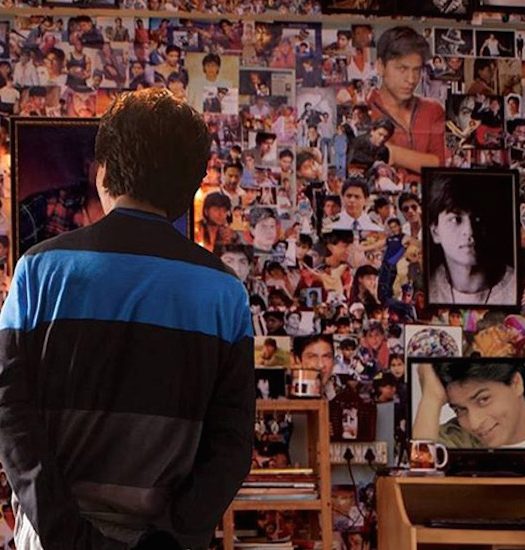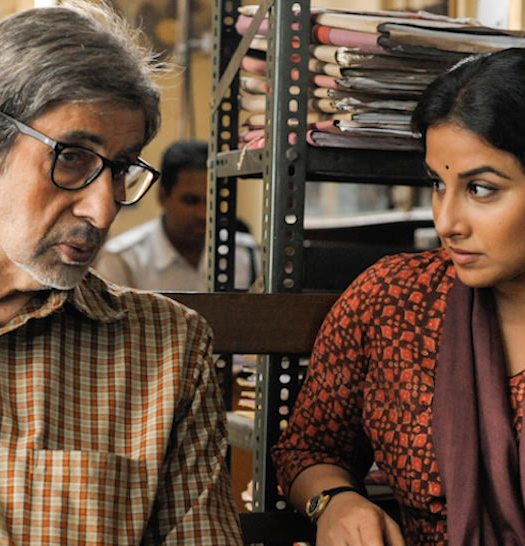Marriage of theater and cinema can be wondrous or disastrous : Aparna Sen
Aparna Sen is a maverick at creating intricate characters, be it male or female. When it comes to her complex and layered women characters, the actor-director believes that it is important to “bring her female gaze into play while making films”. With her upcoming film Sonata, an adaptation of Mahesh Elkunchwar’s play by the same name, Sen celebrates female bonding and explores various aspects of the ‘feminine’.
From playing one of the protagonists to directing powerhouse performers like Shabana Azmi and Lillete Dubey to the pros and cons of adaptation, we catch up with Ms.Sen to know more about her approach to Sonata.

Aparna Sen
What was it about Sonata that made you want to adapt it into a film?
I had first seen it as a stage production, and marveled at how a narrative set in a single space and time, with only three characters, held together and captivated the audience. It had such interplay of different moods and was so intense at times while being so playful at others, that there was not a boring moment. Also, I found it to be a celebration of female bonding. There have been so many films made on male bonding and so few on female bonding, that I thought why not try to make this play into a film? So I did.
Another challenge that it offered was the use of a single space in the course of an entire film without making it appear confined. It meant innovative choreography and lighting. I was only too happy to take up that challenge.
You’ve also introduced some new characters, does that change the story much from the play?
Not essentially. For me, apart from the celebration of friendship, the film (and the play) is also an exploration of various aspects of the ‘feminine’. In order to extend the scope of that exploration, I introduced a transgender woman who is also a friend of the trio, as well as a maid called Ramabai. Ramabai is married unlike them, and, unlike them, she has a daughter. So you have three very different single, childless women of the upper middle class, a married woman who is also a mother, from a different economic strata (thus cutting across class divisions), and a transgender woman who had been born a man. Hence, without changing the essential flavour of the play, it extends the scope of what we perceive as ‘feminine.’
Given that all your films have intricate and complex women characters, would it be right to say that this intricacy draws you, and your stories are weaved around it?
I have made other films too, you know, films that are not necessarily populated with women characters. In Mr. and Mrs. Iyer the focus was on communal harmony/disharmony rather than intricate female characters. However, being a woman myself, I find it easy to empathize with other women. I also, feel it is important to bring my female gaze into play while making films.

With Shabana Azmi and Lillete Dubey in a still from Sonata
How much were you able to identify with Aruna Chaturvedi?
Not a great deal, I’m afraid. She is so unlike me, being an UP-ite Brahmin and a withdrawn and reserved person who finds it difficult to express her feelings. Also, unlike me, she is a scholar. Although I studied Sanskrit in school and have an interest in ancient Indian history and the epics, I can hardly be described as a scholar of Indology!
Being an actor-director, how does that influence your manner of getting into the skin of a character?
It is difficult at the best of times. I had to rely heavily on my close friend and associate Sohag Sen who is a well-known theatre personality, and functioned as our acting coach in this film.
How did you decide upon Shabana Azmi and Lillete Dubey for the other two characters? And how does one guide such phenomenal actors to make the character their own?
Dolon, the character played by Shabana, sings Rabindra sangeet in the film. Shabana, who is a wonderful singer, was a natural choice as far as I was concerned, for that reason alone, as I did not want any playback. Besides, Dolon is a very funny, bubbly, feisty character and Shabana, when she is in the mood, is very much that! One doesn’t get to see that side of her much in films, but I just knew she’d be perfect. And she was!
Lillete, too was a natural choice. As it happened, for all three of us – Mahesh Elkuchwar the playwright, Sohag Sen and me – Lillete was the first choice, and serendipitously, she agreed at once!
How does one guide such actors? By not saying too much!

Aparna Sen with Lillete Dubey, Shabana Azmi and team during the making of Sonata
As a filmmaker, what is your process of casting like?
To start with, I look for someone whose appearance matches the image I have in mind. That’s 50 percent of the work done. Then I try to find good actors to fit that image. Sohag Sen also helps me with the casting.
What are the challenges of adapting a play into a film? Also, are there any aspects that become easier because a flow is in place?
The advantage is that the dialogue is already there. If I have chosen a play, it is usually because I like the dialogue as well as the subject matter. The scenes are also already written. Yes, I may have to edit or change things around, but the base is already there. The challenge is to see that it does not become static when made into a film or appear unnecessarily melodramatic.
The marriage of theater and cinema can be either wondrous or disastrous. The challenge is to see that it does not end up being the latter!



